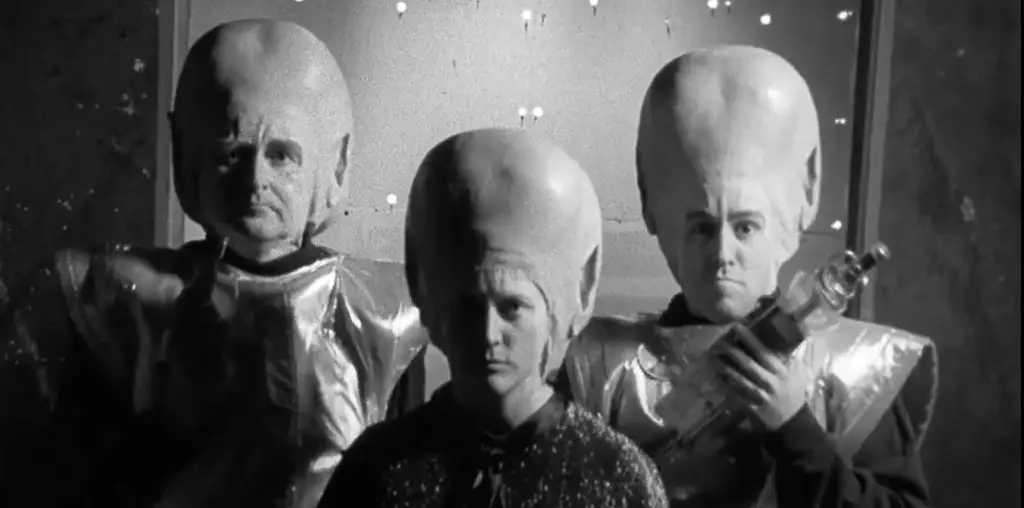
Your independent film is a very fragile ecosystem. Any major technical flaw can produce a chain reaction, dragging everything down with it and spoiling the good intentions of the filmmaker. This is the case with Kirk Bowman’s first feature “Bittersweet Lies.” An ensemble drama about a group of Generation-Y patients at a month-long suicide awareness center, “Bittersweet Lies” is entirely undone by an unbearably bad score which prevents the film from ever establishing a tone and undermines any of the game efforts by the large cast. An annoying mix of studio music and original music by Gary Lamb, there isn’t a single appropriate musical queue in the entire movie. This results in humor that probably wasn’t intentional and throws any attempts at drama out of synch.
“Bittersweet Lies” had a number of narrative problems to begin with. The basic premise is a sorta manic-depressive Breakfast Club, where the cast is composed of actors playing one-note established types and then (in theory) by the end of the feature, it should become clear that none of these young people are so easy to categorize. There’s Cassie (Agatha Helena), an attractive blond who attempted to outrun a train with her best friend Rene (Megan Hastings). There’s the sexy pathological liar Brooke (Hilary Bettis), who tried to off herself with booze and pills. There’s a clowning African-American patient Jack (Collin Kahey) who’s written and performed as nary a step up from “Amos and Andy.” There’s JoAnne (Hannah Lee) and strange mix of goth, hippie, and ditz. There’s Lance (Dal Wolf), bookish and near-mute, carrying a huge secret. There’s Diane (Kim Van Lare), the bubbly blond who’s smarter than anyone gives her credit for. In addition to the characters I mentioned, there are another ten major characters. The retreat is run by Dr. Beckwith (Elizabeth Ince) with the intent of forcing these young people to face the truth about their lives and their suicide attempts.
Do you see how this might get jumbled in a 90 minute film? See how it might be tough for an inexperienced filmmaker to juggle so many storylines in a coherent fashion? Things get more complicated when Brooke discovers that one of the patients is using a connection on the outside to perpetrate a major credit card fraud, bilking the innocent patients out of thousands of dollars. And naturally nobody will believe her. There’s also a major surprise involving Cassie and countless breakdowns from other characters. But the film never establishes a structure in which all of these people can exist on equal footing. The plot is mostly a series of group counseling sessions punctuated with periods of outdoor recreation and the heavier complications (like the credit card fraud) seem arbitrary. Some characters are there only to come to pat psychological revelations (racist stereotype Jack uses his regressive humor as a defensive mechanism? No way!), and just as you become interested in other characters, they vanish for large stretches and become irrelevant.
Things are made worse by the varying performance styles of the actors, some of whom seem to be playing their parts for heavy pathos, while other seem to be going for comedy, and still others are aiming for a mixture that never gels. The misbegotten score makes nearly every scene feel like it might be parody, however, the film’s conclusion makes it clear that teen suicide is being treated very seriously here. “Bittersweet Lies” never feels like the work of a cast and crew that were on the same page.
“Bittersweet Lies” is shot on video and at no point does it overcome the liabilities of the medium, with problematic lighting (characters go to sleep in rooms with sunlight pouring through the windows) and focus (there are some close-ups and angles that video just can’t sustain). And Bowman, who also edited, should know that the star wipe is not an acceptable cutting choice, even as a joke.
Bowman’s writing is ahead of his directing and “Bittersweet Lies” will probably best serve as a showcase for the fresh-faced cast. As a rule, the women in the cast are far better than the men, with Bettis, Helena, and Monica Brinn showing the most potential. These three actresses show how, with better focus, “Bittersweet Lies” could have emerged as something more than an Afterschool Special with bad music.
